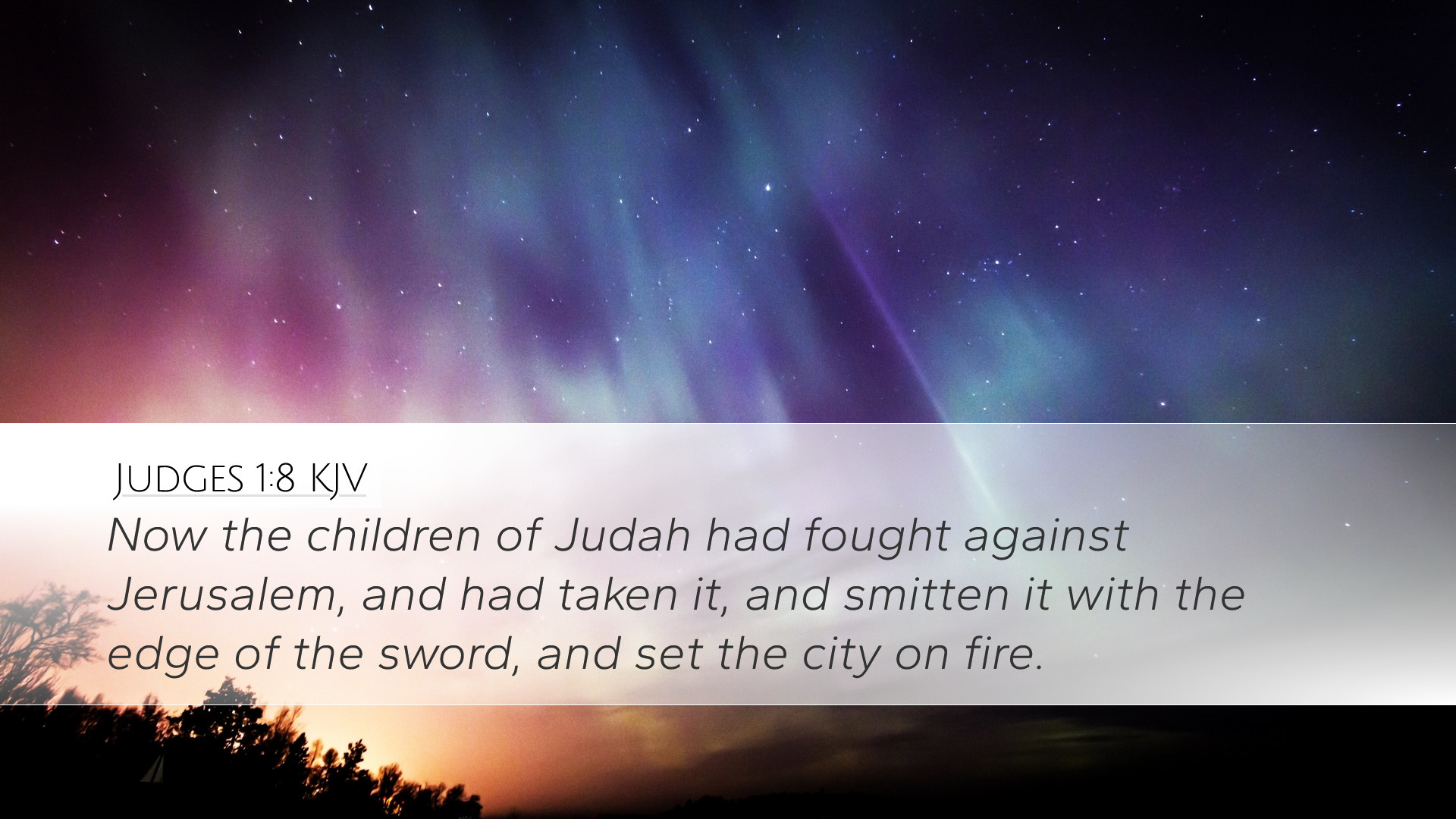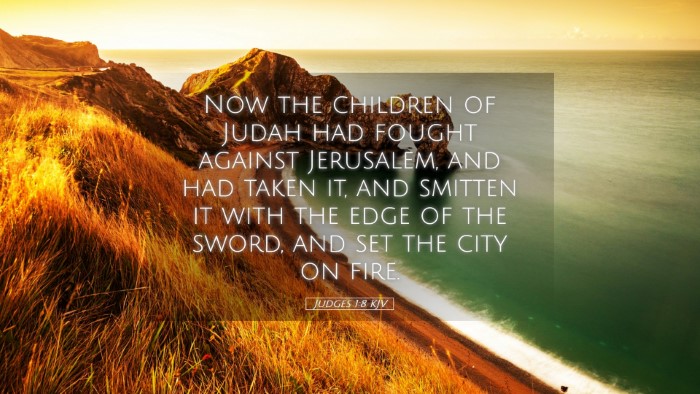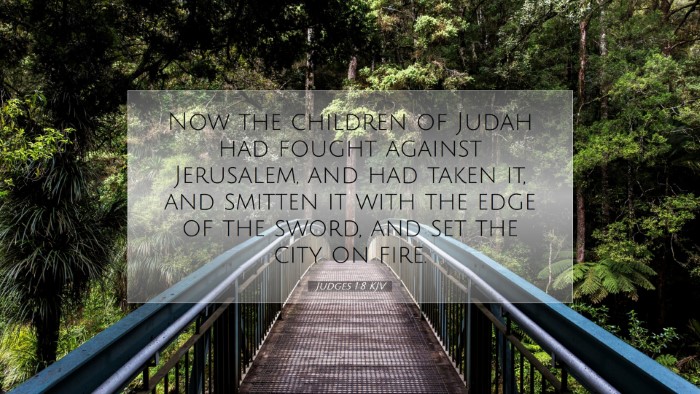Bible Commentary on Judges 1:8
Verse Overview: Judges 1:8 states, "And the children of Judah had fought against Jerusalem, and had taken it, and smitten it with the edge of the sword, and set the city on fire." This verse marks a significant event in the conquest of Canaan, indicating the military actions of the tribe of Judah and the fate of Jerusalem.
Contextual Background
The Book of Judges follows the historical narratives of the conquest of Canaan as initiated by Joshua. It portrays a period of Israelite history marked by cycles of disobedience, oppression, and deliverance. By the time of this particular verse, the Israelites have settled in the land, yet face resistance from various entrenched Canaanite tribes.
Commentary Insights
- Judgment and Warfare: The action of the tribe of Judah in taking Jerusalem highlights the theme of divine judgment against cities of wickedness. Matthew Henry notes that their victory demonstrates both God's sovereignty and the fulfillment of His promises regarding the land.
- The Role of Judah: Judah is a significant tribe within Israel, often associated with leadership and strength (see Genesis 49:10). Albert Barnes comments on the importance of this tribe as the one chosen to lead the charge against the Canaanites, fulfilling Jacob's prophecy regarding the lion's strength and kingly rule of Judah.
- Jerusalem's Fall: Adam Clarke elaborates on the implications of Jerusalem's capture. At this time, Jerusalem was a Jebusite stronghold, and its conquest reflects both a military success and a theological narrative, as it was God's will for His people to cleanse the land of idolatrous nations. Jerusalem, later becoming the capital city and religious center of Israel, shows the progressive revelation of God's plan for His people.
- Destruction and Fire: The act of setting the city on fire carries symbolic weight. It represents divine wrath and complete desolation of a place that had opposed God's people. Henry reflects on this act of burning as part of the divine mandate to purge the land from corruption and immorality, emphasizing the seriousness of sin and God's judgment.
Theological Reflections
This verse prompts reflective theological discussions about God’s justice and mercy. The destruction of Jerusalem illustrates the consequences of idolatry and rebellion against God. It teaches subsequent generations the seriousness with which God views sin, and the lengths to which His people must go in order to remain faithful to their covenant obligations.
Application for Today
For modern readers, particularly pastors and theologians, this passage raises questions about holy war, divine justice, and the nature of conquest in the biblical narrative. It challenges believers to consider the cultural and historical context of scripture while exploring the spiritual implications of obedience, divine retribution, and the nature of God's promises.
Concluding Thoughts
Judges 1:8 serves as a reminder of the fierce struggles faced by God's people in their attempts to establish themselves in the land promised to them. It underscores the theme that God equips His people to overcome obstacles when they remain faithful to Him. To be effective in ministry, believers must grasp the complexities of their faith heritage, the nature of divine promise, and the steadfastness of God’s justice.


